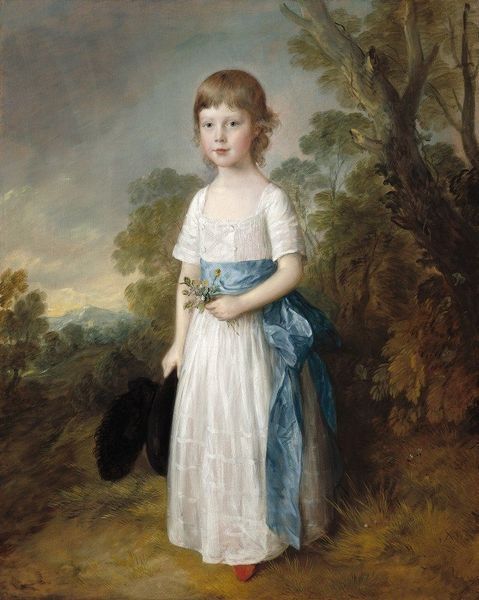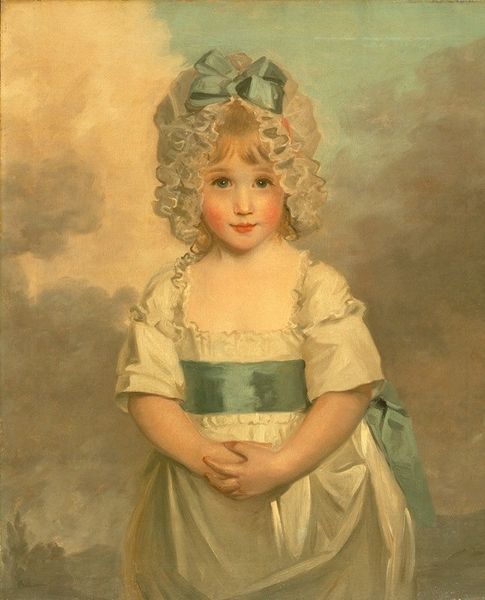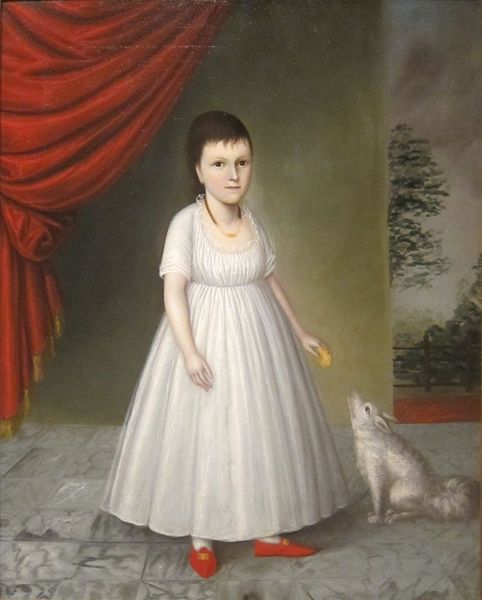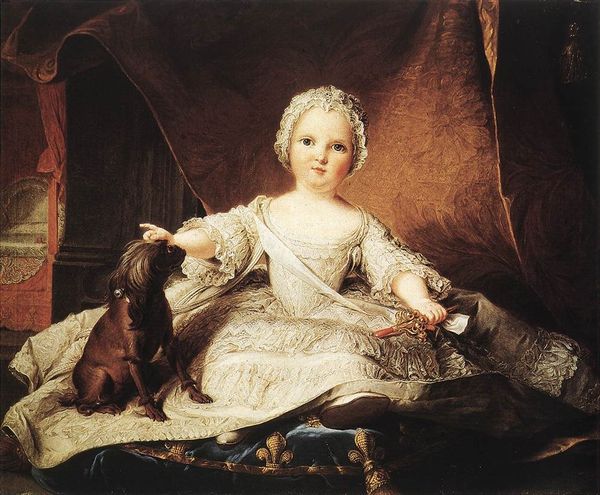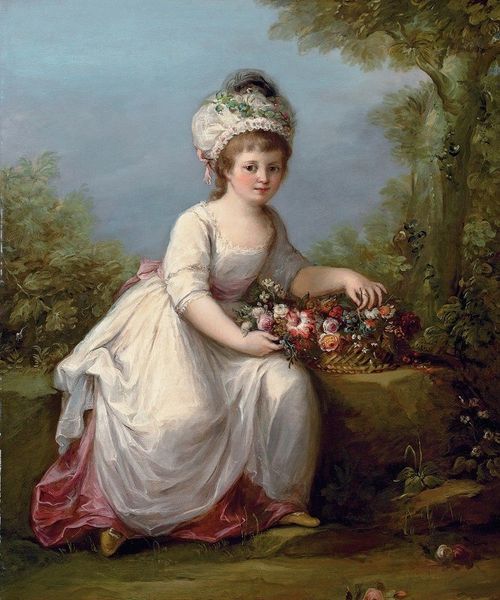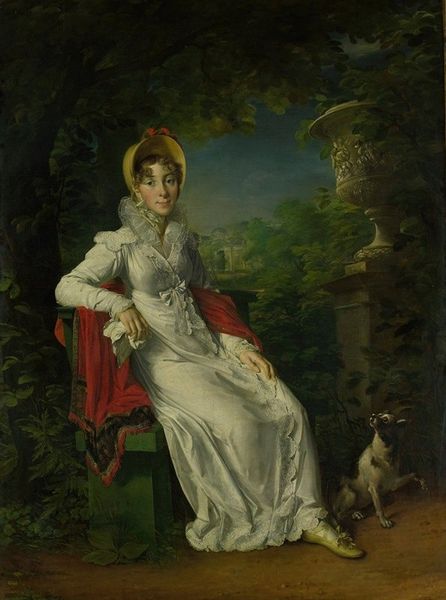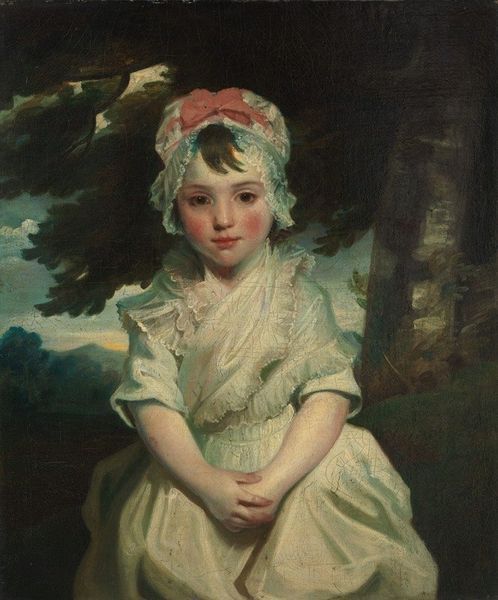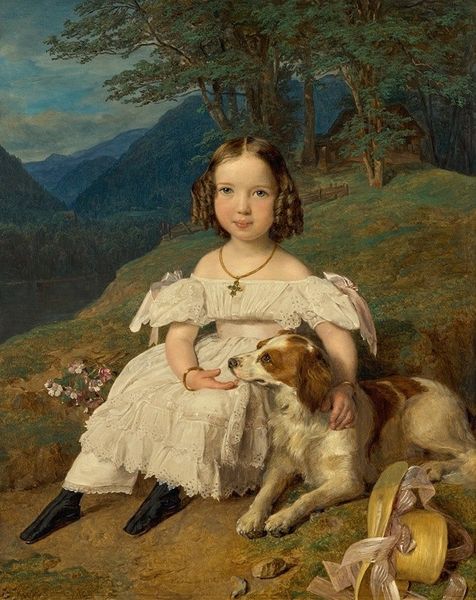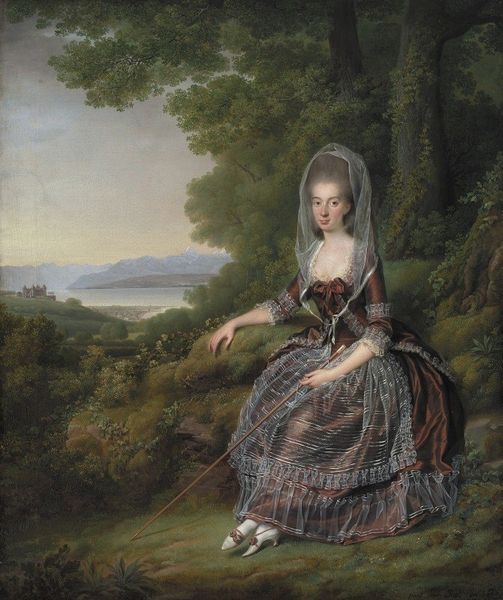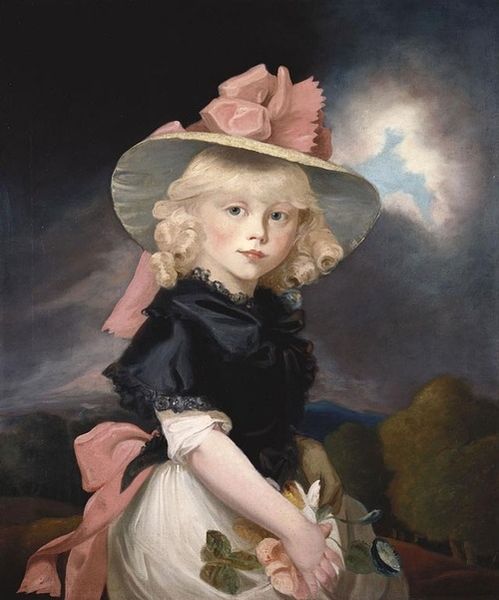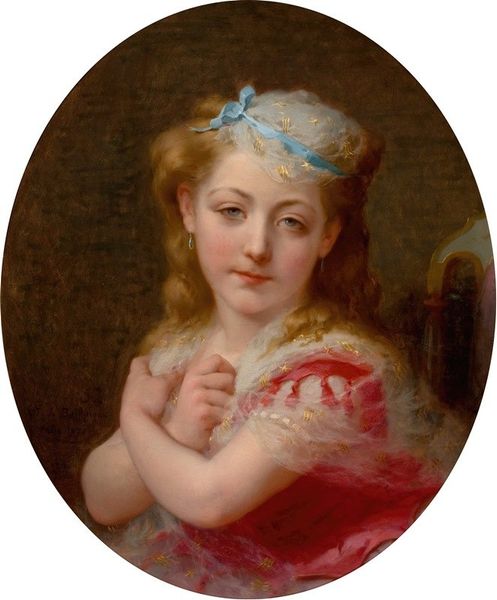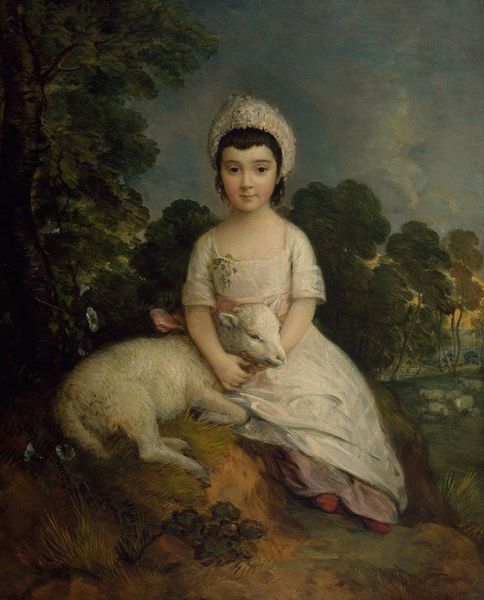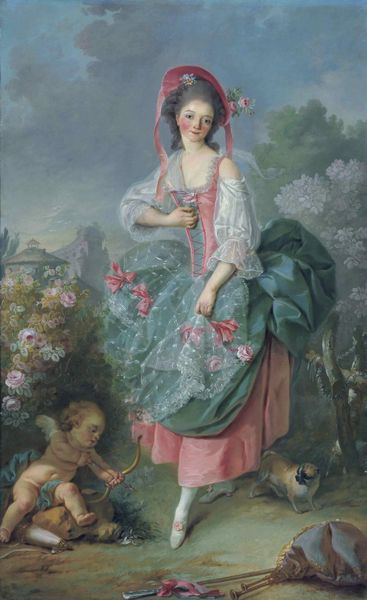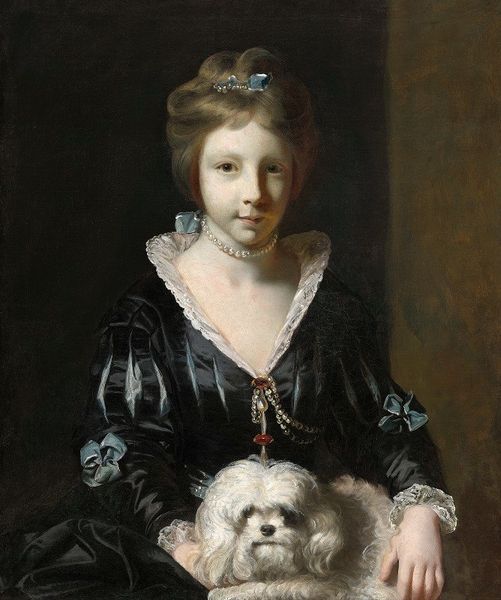
Copyright: Public Domain: Artvee
Francisco de Goya painted María Teresa de Borbón y Vallabriga, later Condesa de Chinchón, using oil on canvas. The rich layering of oil paint, a material prized since the Renaissance, allows for a remarkable rendering of textures: the delicate lace trimming Maria Teresa’s dress, the heavy velvet of her skirt, and the soft fur of her little dog. Goya's technique elevates these materials, but let's also consider their origins. Fine lace was painstakingly handmade by skilled artisans, and velvet was woven on complex looms, all requiring many hours of labor. The production of these luxury materials reflect a hierarchical social order. Clothing was deeply tied to social status, and this portrait is no exception. María Teresa’s attire speaks volumes about her position, as she was the daughter of an Infante of Spain. Through careful attention to materials and processes, Goya not only captured a likeness, but also offered a glimpse into the labor, politics, and consumption that defined her world. It's a reminder that even the most seemingly straightforward images are embedded with complex cultural information.
Comments
No comments
Be the first to comment and join the conversation on the ultimate creative platform.
